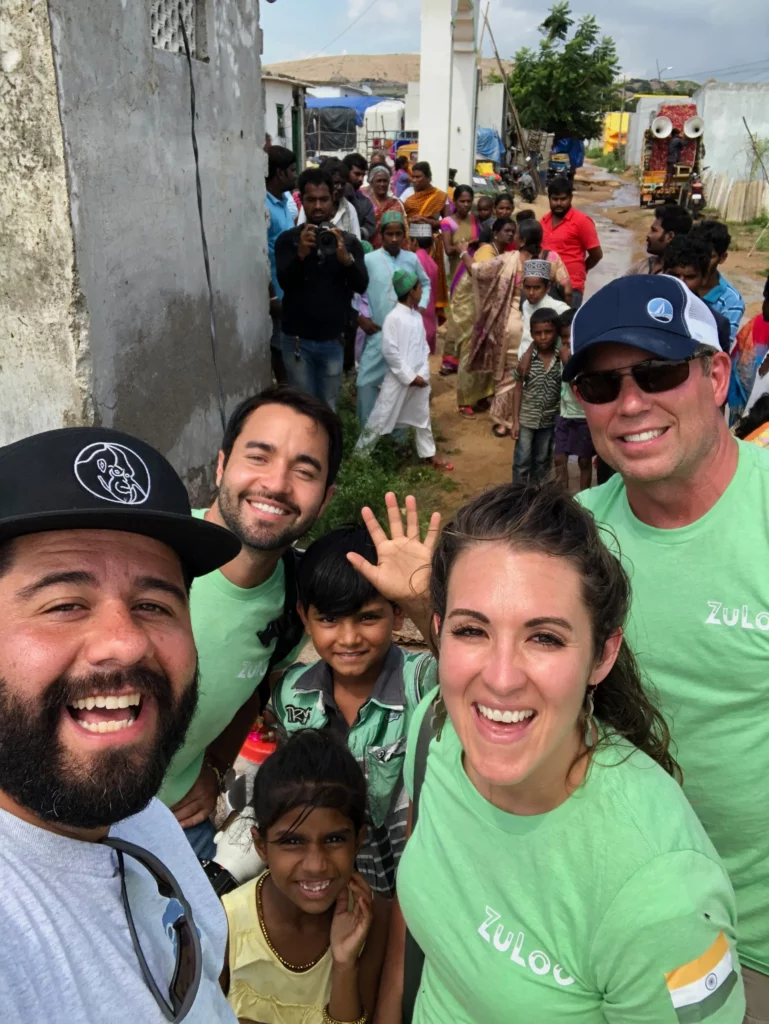Story
Chris’ Story
I had worked with Darin (ZuLoo’s founder) for a number of years on other projects before I joined ZuLoo, during which time he had raised my awareness about the sanitation crisis simply through conversation. Our discussions spurred me to read about it online, to read about it in Rose George’s book and it began to sink in: this was a big global problem. It didn’t truly hit home though until we were actually on our first trip in India. We were in a small village and we asked the group of the women there, by a show of hands, how many of them had been affected by rape, either through a family member or personally. In this group of 40 women, every single one of them raised their hand. That was like a moment where it hit me. Tears came into everybody’s eyes because we knew that what we were doing was way more than just giving people a bathroom, which sounds so simple. We were providing security, a safe place for women and their families to just exist. It was about people’s lives every day. So that, that’s when the shoe dropped.
And this is not just something that happens as a result of poverty – a natural disaster can make normal people, who have worked hard to build a home and life, to the brink of having nothing out of nowhere. After Hurricane Maria hit Puerto Rico, which is a US territory and has access to US aid, there were families who were sometimes living for years in conditions where their bathroom didn’t work. The funding given can often rebuild the shell of a house but when it comes to details like sanitation the money runs out, it’s not recognised as a necessity, but what could be more of a necessity than having somewhere to go to the bathroom? This is why, when we saw an opportunity to work with families in Rico to improve their sanitation situation, we jumped on it.
Generally, you see a lot of clean water initiatives that are all about, and even during a natural disaster people who good heartedly want to help say “we’re gonna go send a bunch of water down there”, but what are we doing to cover the sanitation? You can give families all the clean water that they need, but if they don’t have a safe, clean place to go to the bathroom that clean water is contaminated, and that’s the issue.

